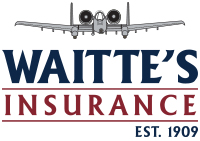 With freezing cold temperatures, you need to make sure to protect your home. In addition to having Norwich CT House Insurance, you must take the necessary steps to keep your home safe and ready for winter. Your best bet is to safeguard against the following winter complications, but in even a worst-case scenario, having proper Norwich CT house insurance will lessen any stressful situation that may arise.
With freezing cold temperatures, you need to make sure to protect your home. In addition to having Norwich CT House Insurance, you must take the necessary steps to keep your home safe and ready for winter. Your best bet is to safeguard against the following winter complications, but in even a worst-case scenario, having proper Norwich CT house insurance will lessen any stressful situation that may arise.
Here are some common winter problems and how to protect against them to keep your Norwich CT House Insurance rates as low as possible.
Frozen Pipes:
Pipes that freeze can crack from expanding ice, creating a world of complications for your plumbing. One way to prevent frozen pipes is to fully insulate them with foam insulation. If insulation is not updated or even plausible for your home, schedule regular inspections of all pipes during the winter months.
Cold Internal Temperature:
Heat always finds a way to escape from your home in wintertime. Proper insulation is the best defense against this from happening. Updated weather stripping around areas that allow cold air in will also help to avoid having to crank up your thermostat.
Roof Damage:
Snow and fallen tree branches can be detrimental to your roof. Weak tree branches over your home that accumulate heavy amounts of snow are likely to crack and fall onto your roof, causing leaks or even collapses. This can become a nightmare in regards to your Norwich CT house insurance premium. Trim branches hanging over your roof and always clear your roof of snow immediately after a storm. Snow that lingers on a roof for too long can turn into ice, making it increasingly difficult to remove later.
Weathering:
Strong storms can strip the paint on your house. Make sure to use weather-resistant paint to keep it looking fresh all year long. If you plan on putting your house on the market in the future, weathered paint can be a major deterrent for potential buyers.
Damage to the Landscape:
Winter storms can kill plants and knock over unsteady trees. Bring any potted plants that you wish to keep throughout the winter inside to save them from cold temperatures. Surround and cover additional outdoor plants or gardens with mulch so they are not extensively damaged by frost. You may also want to consider laying down a wintertime fertilizer onto your lawn to ensure your grass returns greener than ever come spring.
Formation of Ice Dams:
Ice dams can easily form when the parts of your roof near the top are warmer than the rest of it. The snow in these areas will melt faster and then refreeze toward the eaves. Invest in a roof rake to get rid of the snow before this can happen. Also, keep downspouts clear of debris. Adding attic insulation will keep heated air from getting to the roof through the attic.
Long-time New Englanders know the trials of up-keeping their home during the bitter winter months. With these simple precautionary measures, you can avoid a stressful ‘brain-freeze’ and keep your Norwich CT house insurance at a low, affordable rate. Are you due for a homeowners insurance review or wish to compare your current rates?

 Connecticut personal umbrella insurance is a safeguard that protects you from incurring unexpected expenses as the result of an accident. And while this sounds like the pitch for the auto and homeowners insurance policies that you already have, it’s actually a bit different.
Connecticut personal umbrella insurance is a safeguard that protects you from incurring unexpected expenses as the result of an accident. And while this sounds like the pitch for the auto and homeowners insurance policies that you already have, it’s actually a bit different. While the month of February includes Valentine’s Day, the time to consider those near and dear to your heart, it’s also the month to remember to care for your actual heart. February is American Heart Month, which is a designated time to raise awareness of the factors that contribute to good heart health. Among these factors are exercising regularly, a diet featuring plenty of fresh fruits and vegetables, and controlling stress. Without these daily habits, not only will your physical health suffer, but your Connecticut Health Insurance premiums could also be affected.
While the month of February includes Valentine’s Day, the time to consider those near and dear to your heart, it’s also the month to remember to care for your actual heart. February is American Heart Month, which is a designated time to raise awareness of the factors that contribute to good heart health. Among these factors are exercising regularly, a diet featuring plenty of fresh fruits and vegetables, and controlling stress. Without these daily habits, not only will your physical health suffer, but your Connecticut Health Insurance premiums could also be affected. As winter slowly fades into spring, people are gearing up for what should be delightful weather this season in New England. It’s the type of weather that is perfect for riding a motorcycle up and down the scenic east coast. While your buddies already have theirs, you might be thinking you are overdue for buying your own motorcycle. But before you start your search to find the sweetest ride, we’ve provided a checklist of items to consider to ensure you’re ready to hit the road. Buying a motorcycle is much like buying a car, only with a few more caveats.
As winter slowly fades into spring, people are gearing up for what should be delightful weather this season in New England. It’s the type of weather that is perfect for riding a motorcycle up and down the scenic east coast. While your buddies already have theirs, you might be thinking you are overdue for buying your own motorcycle. But before you start your search to find the sweetest ride, we’ve provided a checklist of items to consider to ensure you’re ready to hit the road. Buying a motorcycle is much like buying a car, only with a few more caveats. Workers’ Compensation is a type of insurance that is a MUST for employers to purchase in order to protect themselves and their employees in the event of an on-the-job accident. The Connecticut Workers’ Compensation Act (WCA) outlines the responsibilities of Connecticut employers to provide this protection for their employees. You cannot operate a business in Connecticut without a workers’ compensation plan of some sort. But why do you need it? And what level of protection must you provide?
Workers’ Compensation is a type of insurance that is a MUST for employers to purchase in order to protect themselves and their employees in the event of an on-the-job accident. The Connecticut Workers’ Compensation Act (WCA) outlines the responsibilities of Connecticut employers to provide this protection for their employees. You cannot operate a business in Connecticut without a workers’ compensation plan of some sort. But why do you need it? And what level of protection must you provide? With boat season rapidly approaching, buying a boat and hitting the open water is more tempting than ever. As wonderful as the idea of going nautical sounds, (especially in Connecticut) purchasing a boat comes with a laundry list of factors to strongly consider. Much like investing in an automobile or a home, first-time boat buyers will want to do their homework before making any hefty investments. For those with little-to-no experience in this process, we have compiled a checklist of items that can help take the angst and guess-work out of choosing the right watercraft for your needs.
With boat season rapidly approaching, buying a boat and hitting the open water is more tempting than ever. As wonderful as the idea of going nautical sounds, (especially in Connecticut) purchasing a boat comes with a laundry list of factors to strongly consider. Much like investing in an automobile or a home, first-time boat buyers will want to do their homework before making any hefty investments. For those with little-to-no experience in this process, we have compiled a checklist of items that can help take the angst and guess-work out of choosing the right watercraft for your needs.
 Misconceptions Regarding Seat Belts:
Misconceptions Regarding Seat Belts: So you say you’ve never had to file any homeowner’s insurance claims. (knock on wood!) If you fall into this category, then you’re one of the fortunate ones. However, as long as you’re aware that disasters can occur at any moment, you’re more prone to take precautions to lessen the blow whenever the need to file a claim may pop up. Even the most common damages or injuries that occur inside or around the home can be minimalized with a few simple preventative measures. Check out some of the ways you can decrease the likelihood of having to file a claim on your home.
So you say you’ve never had to file any homeowner’s insurance claims. (knock on wood!) If you fall into this category, then you’re one of the fortunate ones. However, as long as you’re aware that disasters can occur at any moment, you’re more prone to take precautions to lessen the blow whenever the need to file a claim may pop up. Even the most common damages or injuries that occur inside or around the home can be minimalized with a few simple preventative measures. Check out some of the ways you can decrease the likelihood of having to file a claim on your home.
 A firearm of any kind is a very serious piece of equipment. For gun owners, firearm safety should be a common sense ideology. However, the majority of gun accidents in the household occur from lack of education or not taking the proper precautions. Whether you’re already a gun owner or looking to become one, you always want to avoid a potentially deadly scenario in your home by using extreme caution and abiding by basic firearm safety protocol. This could mean the difference between protecting your family from home invaders and accidentally harming someone that you love or an innocent bystander.
A firearm of any kind is a very serious piece of equipment. For gun owners, firearm safety should be a common sense ideology. However, the majority of gun accidents in the household occur from lack of education or not taking the proper precautions. Whether you’re already a gun owner or looking to become one, you always want to avoid a potentially deadly scenario in your home by using extreme caution and abiding by basic firearm safety protocol. This could mean the difference between protecting your family from home invaders and accidentally harming someone that you love or an innocent bystander.